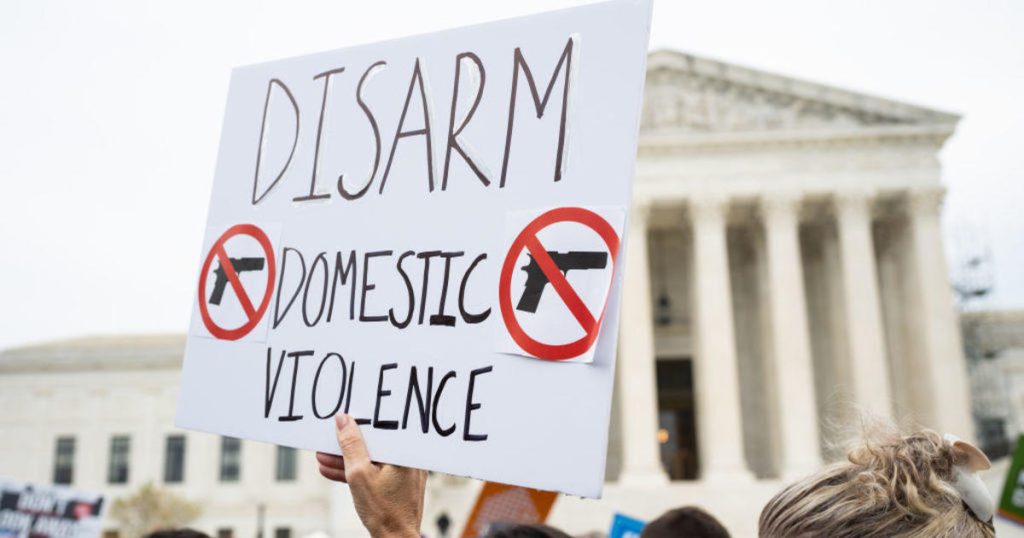The Supreme Court has upheld a federal law prohibiting individuals who are subject to domestic violence restraining orders from possessing firearms. In an 8-1 decision, the court ruled that individuals found to pose a credible threat to the safety of another can be temporarily disarmed without violating the Second Amendment. Chief Justice John Roberts wrote the majority opinion, with Justice Clarence Thomas as the lone dissenter. The decision overturned a ruling from the U.S. Court of Appeals for the 5th Circuit that had struck down the gun possession ban for alleged domestic abusers.
The case, known as U.S. v. Rahimi, was the first Second Amendment case heard by the court following a landmark ruling in 2022 that expanded gun rights and established new criteria for determining the constitutionality of firearms restrictions. The court’s decision in the Rahimi case clarified the application of this new legal framework and provided guidance for lower courts in interpreting gun laws. The law in question prohibits individuals under domestic violence restraining orders from possessing firearms, a measure aimed at protecting victims of domestic violence from further harm.
The majority opinion emphasized that the firearms ban for alleged domestic abusers is consistent with historical firearms regulations dating back to the nation’s founding. The court rejected arguments that the prohibition violated the Second Amendment, noting that laws disarming individuals who pose a threat of physical harm have long been part of the nation’s legal tradition. Chief Justice Roberts emphasized that the decision in the Rahimi case does not require laws to be exact historical replicas but must align with the underlying principles of the Second Amendment.
Justice Thomas dissented from the majority opinion, arguing that the firearms prohibition for individuals under domestic violence restraining orders goes beyond historical regulations and infringes on Second Amendment rights. He expressed concern that the ruling in the Rahimi case could have broader implications for other gun laws and individuals’ rights. The decision is expected to impact ongoing legal challenges to other gun laws, including those involving nonviolent felonies and unlawful drug users. The ruling provides a framework for evaluating the constitutionality of these laws based on historical firearms regulations.
President Biden and gun violence prevention groups welcomed the Supreme Court’s decision, hailing it as a victory for protecting survivors of domestic violence. The ruling reaffirms the government’s authority to disarm individuals who pose a threat to public safety, particularly in cases involving domestic abuse. While the decision in the Rahimi case is seen as a significant win for gun control advocates, challenges to other gun laws are likely to continue in lower courts. The Supreme Court’s guidance on historical firearms regulations will play a key role in evaluating the constitutionality of these laws in future cases.


